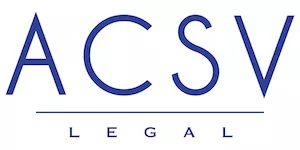- in Asia
- in Asia
- in Asia
- within Government and Public Sector topic(s)
1. LEGAL SYSTEM
1.1 Legal System and Judicial Order
The legal system in Vietnam follows the civil law tradition and is noticeably influenced by continental European codifications of civil law (particularly the French Civil Code). The Vietnamese legal system consists of a Constitution, codes, laws, ordinances, decrees, decisions, circulars, directives and resolutions. Legal texts are published in the Official Gazette. Decrees and circulars contain guidelines to implement laws, codes and ordinances. Local governmental agencies may also issue official letters further guiding the implementation of any of these pieces of legislation.
Vietnam is a one-party socialist republic, and the judiciary falls under the leadership of the Communist Party of Vietnam and is accountable to the National Assembly. Judges and procurators are members of the Party. The judicial order of Vietnam's court system is separated into the local, regional and national levels. Usually, a civil case brought before a competent Vietnamese court will undergo a maximum of two instances: the first instance and the appellative instance. The Constitution of Vietnam governs the Vietnamese judicial system, together with the Law on the Organisation of People's Courts and the Law on the Organisation of People's Procuracies.
The Supreme People's Court is the highest court. Below that, there are three levels of People's Courts: the High People's Courts, the Provincial-Level People's Courts and the District-Level People's Courts. The High Courts in Hanoi, Da Nang and Ho Chi Minh City are appellate and cassation courts, and responsible for the northern, central and southern regions of the country, respectively. The Provincial Courts are both trial and appellate courts, and the district courts are trial courts.
Business, commerce or labour-related cases in which one party or the related asset is located offshore, or that require judicial assistance by an overseas representative agency of Vietnam, a foreign court or other foreign competent authority, are generally subject to the jurisdiction of the Provincial Court.
2. RESTRICTIONS TO FOREIGN INVESTMENTS
2.1 Approval of Foreign Investments
Foreign investment into Vietnam requires approval and licensing by the local authorities, the scope and shape of which largely depend on the nature of the envisaged business. The (new) 2020 Law on Investment, which entered into force as of 1 January 2021, retains clear distinction between a foreign and Vietnamese investor. A variety of procedures apply to foreign investors, defined by the volume and type of their desired Vietnamese engagement. A foreign investor is required to register their investment or to obtain certain documents before they can start with the investment project.
According to the law, a foreign investor is, or is considered as such, with respect to investment conditions and procedures:
- an individual with foreign nationality;
- an organisation incorporated in a foreign jurisdiction; or
- a Vietnamese-incorporated enterprise in the following cases:
-
- more than 50% of its charter capital is held by a foreign investor(s), or a partnership has a majority of partners being foreign individuals in the case of a partnership enterprise;
- more than 50% of its charter capital is held by an enterprise(s) prescribed in point (a) above;
- more than 50% of its charter capital is held by a foreign investor(s) and an economic organisation(s) prescribed in point (a) above.
From the perspective of a foreign investor, Vietnamese investment law makes a general distinction between "conditional/restricted" and "unconditional/unrestricted" business lines. The conditional/restricted ones, in which certain additional requirements may apply, are designed to regulate foreign activities in Vietnam in industries that are considered "sensitive" or "crucial to the national interests of Vietnam". Some restricted business lines may not be performed under foreign ownership at all.
Under the 2020 Law on Investment, there are currently 227 conditional business lines, which include:
- accounting services;
- insurance services;
- securities trading;
- betting and casinos;
- oil and gas;
- healthcare-related businesses;
- businesses related to transport;
- real estate businesses;
- educational businesses;
- banking and finance-related businesses; and
- agriculture-related businesses
A foreign investor in the market to purchase an existing (Vietnamese) entity – depending on the nature and scope of its business – may need to obtain prior approval of the Department of Planning and Investment (DPI) ("M&A Approval") before capital can be contributed or acquired in an existing enterprise.
2.2 Procedure and Sanctions in the Event of Non-compliance
A foreign investor generally needs to undergo a two-step procedure in order to obtain a licence to operate in Vietnam. In a first step, the investor licenses their investment into Vietnam (obtaining an Investment Registration Certificate). In the second step, through the issuance of the Enterprise Registration Certificate (ERC), a new (foreign-owned) company is born.
For local investment by means of M&A, there is a special rule set, which requires the investor to announce the acquisition to the competent authorities and obtain their approval.
Due to the close monitoring of the local business landscape through the competent authorities (DPI) and a tight grip of the State Bank of Vietnam (SBV) on compliance with strict foreign exchange regulations, investing in Vietnam without authoritative approval is hard to imagine in practice.
Should a foreign investor find a way to pour their money into a local business illegally, possible consequences may include mandatory termination of part of, or the entire operations of, the investment project.
2.3 Commitments Required from Foreign Investors
Commitments from investors (in addition to the investment capital they promise to deploy during their engagement in Vietnam) are not generally regulated. In practice, there are situations where the Vietnamese licensing authority will make its discretional agreement dependent on certain commitments from the investor (eg, contribution to infrastructure developments in the location of the business). There are, however, no generally imposed commitments for foreign investors, outside the general obligation to comply with all laws of the Socialist Republic of Vietnam while doing business there.
2.4 Right to Appeal
There may be possibilities for a foreign investor to challenge the negative decision of an investment-related authority (mostly the DPI) in court under the 2015 Law on Administrative Procedures. However, such a challenge is not likely to have a positive result. In fact, only when the investor is able to prove that the decision affects their legitimate rights and benefits. This should be difficult as, due to the absence of relevant laws and regulations, any dispute over the requirements of an investment endeavour or the legality of an intended corporate structure and business model will generally be solely governed by the discretion of the competent authority.
Vietnamese (investment) law therefore grants to the authorities a high level of decision power, which can pose an obstacle to the feasibility or efficacy of some investment types. In these situations, in which the DPI or another authority communicates that it deems an investment to be problematic, investors will often be given the chance to – through their local counsel and advisers – reiterate their intentions and amend their business plans according to the DPI's agreement.
Click here to continue reading . . .
Originally published by Chambers Global Practice Guides.
The content of this article is intended to provide a general guide to the subject matter. Specialist advice should be sought about your specific circumstances.





